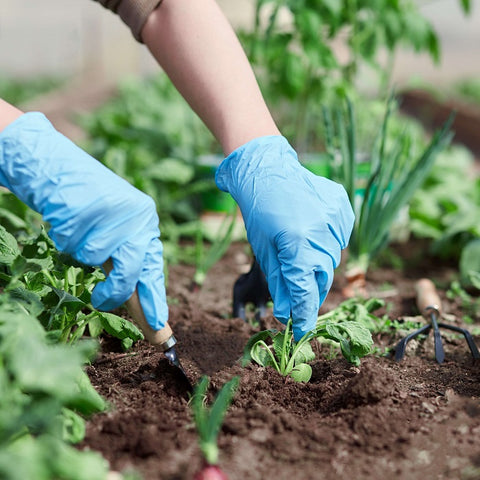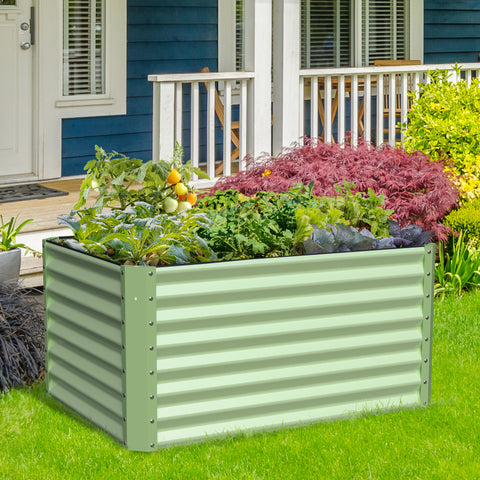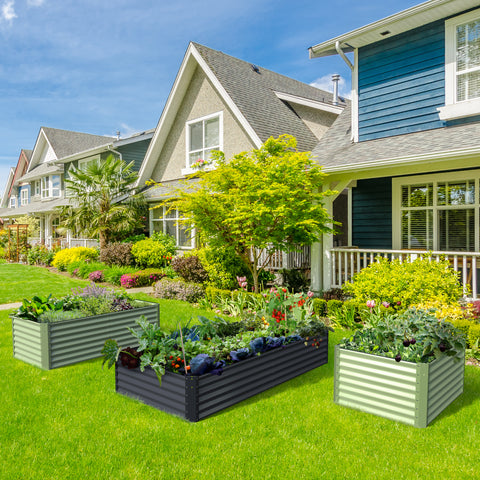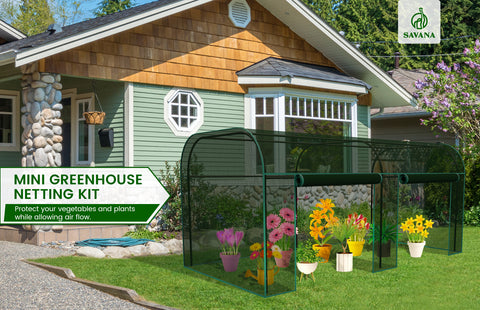The garden does more than just add nice curb appeal, it also builds your DIY skills. Gardening can also improve your health by exposing you to environments and activities that contribute to better physical and mental functioning. Studies around the world have directly linked the impact of gardening to a better quality of life in both urban and rural Settings, benefiting everyone from children to the elderly.

- Gardening relieves stress
A Dutch study that tested cortisol, a natural steroid that helps the body cope with stress, found that gardening was more stress-relieving than reading after a stressful event. (Don't worry, studies have found that reading reduces stress, too!) Home gardeners report that psychological benefits, such as stress relief, are more important to them than cultural bonds or financial benefits, regardless of the type or amount of gardening activity. It's not just the act of gardening; Bacteria in the soil also help combat stress. The same bacteria have also been found to act as antidepressants and build a strong immune system.
- Gardening counts as exercise
Activities such as carrying a planter, digging a hole, stretching to weed, and pushing a lawnmower engage every muscle in your body. The Center for Disease Control and Prevention classifies gardening as a moderate-intensity physical activity, noting that it can burn more than 300 calories per hour, about the same as walking while holding a club and playing golf. More strenuous yard work, like chopping wood or hauling heavy mulch bags, burned more than 400 calories. Gardening may help offset age-related weight gain, a study suggests. There are other tangible physical benefits, such as improved flexibility and hand strength. Plus, you'll probably sleep better after all that gardening.

- Gardening prevents dementia
It's not just a physical exercise, gardening is also good for your brain, especially in preventing the onset of dementia. Gardening can improve cognitive function, with one study finding it can reduce the risk of dementia by 36%.
- Gardening can help fight chronic diseases like heart disease and diabetes
You know plants need sunlight, but did you know your body needs it, too? Like other outdoor leisure activities, gardening can provide a one-two punch of healthy exercise and sun exposure. Moderate sunlight exposure is the most effective way to get vitamin D, which affects more than 1,000 different genes, affects almost every tissue in your body, and affects everything from metabolism to the immune system. Vitamin D has been linked to positive effects on type 2 diabetes, heart disease, bone health and depression. Your gut will also feel the benefits, as vitamin D is thought to help regulate gastrointestinal upset. Of course, it's important to remember to take precautions to safely spend time in the sun.

- Gardening connects people
Gardening connects people to the wider community and combates the negative health effects of loneliness. This may simply mean a personal conversation with a local garden center before digging into a home garden, or sharing gardening tips and successes with an online community. Gardening has a more immediate benefit in Spaces like community gardens, where social bonds and support networks can be formed. This can have an even greater impact in urban Settings, where many residents may suffer from isolation and lack of social support. In these Settings, gardening also offers opportunities for increased interracial interaction, a study found.
- Gardening improves your mood and self-esteem
Being in nature is good for your health, and the effects of exposure include documented mood boosters. Gardening can increase positivity and optimism and has been linked to fighting depression and other mental illnesses. With these good results, it's no surprise that spending time in the dirt improves self-esteem for adults and children with behavioral problems. A study of emotional well-being related to daily activities such as walking, shopping and eating out found that gardening consistently ranked in the top five activities that provide happiness and meaning. The same study showed that women and low-income participants felt the most positive effects.

- Gardening helps you eat a healthier diet
Making healthy food choices isn't always easy, but gardening may help. Growers of fruits, vegetables, and herbs have the added benefit of easy access to nutritious food options (and allow you to control the pesticides or fertilizers you use). In addition, people who grow vegetables are more likely to eat them. One study found that children were more likely to eat fruits and vegetables they had grown themselves, while another found that youth gardening activities were linked to increased food literacy. In addition to the nutritional benefits, vegetable gardeners, in particular, report a more positive emotional impact than those who engage in other types of home gardening.









